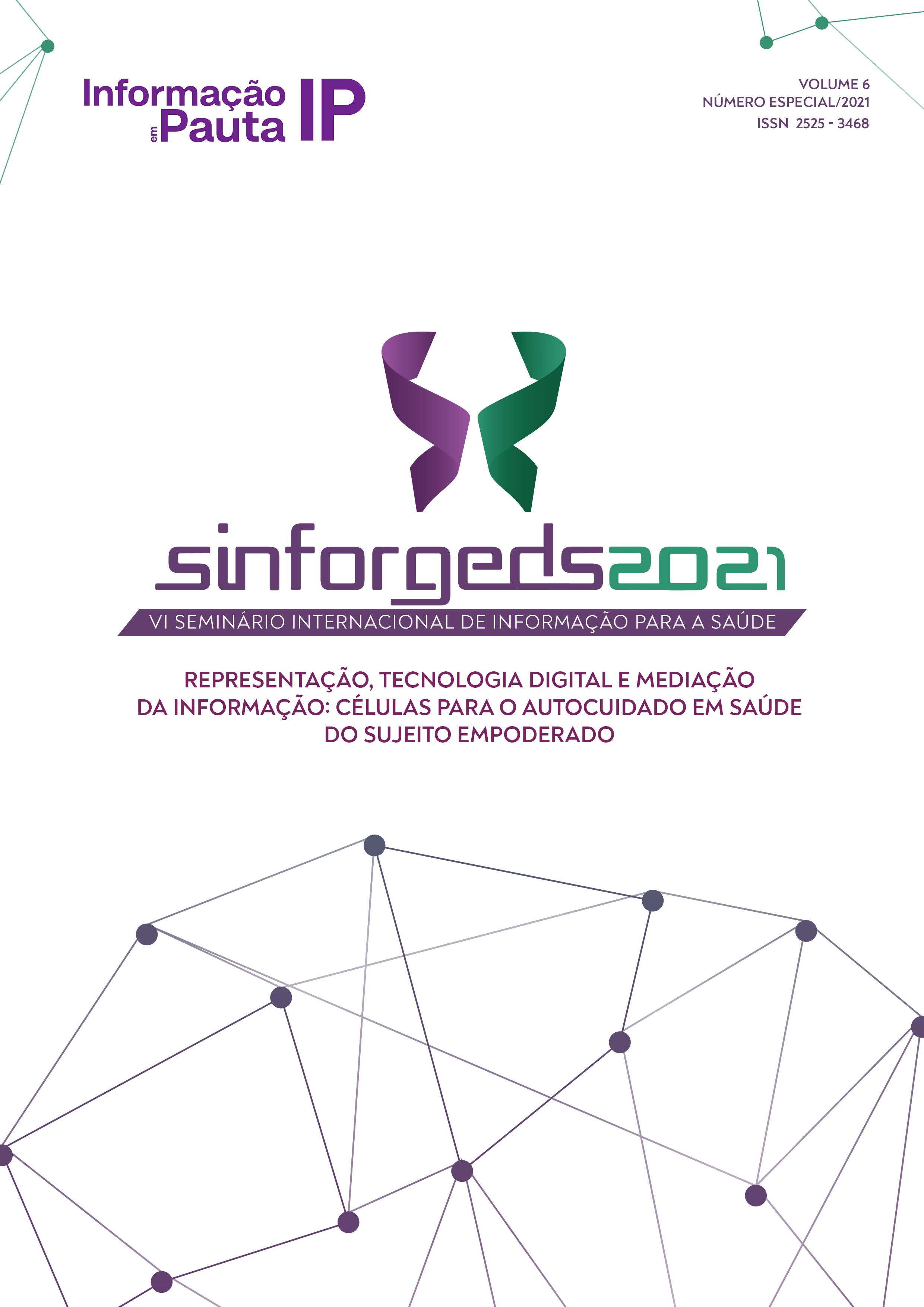The Covid-19 pandemic and its information crisis
the information science response
DOI:
https://doi.org/10.36517/2525-3468.ip.v6iespecial.2021.78014.9-23Keywords:
humanités digitales, information covidienne, negacionisme informationnelleAbstract
In the face of the COVID-19 pandemic, information science is facing a number of new challenges related to information crises for which it was not prepared. Who says global crisis, economic crisis, energy crisis, climate change, etc ... says information crisis, crisis characterized by a drastic increase in the amount of information, by an information epidemic ie an infodemic and by news and numerous misconduct of information practices. The health crisis linked to the COVID-19 pandemic is no exception to the rule: infodemic of good medical and health information but also infodemic of bad information, good informational practices but also numerous misconduct. Accustomed to the register of scientific truth, information science must confront the register of post-truth and conspiracy that seems to characterize our current societies. Information-suspicion, information-denunciation, information-lies, it is, for the science of information, a hardly encouraging new horizon that it should be able to master without problem by mobilizing its arsenal of concepts, methods, laws, of well-established models and theories by preserving and developing the joyous horizon of information-truth.
Downloads
References
LAFOUGE, T.; LE COLADIC, Y.F.; MICHEL, C. Eléments de Statistique et de Mathématique de l’information: infométrie, bibliométrie, médiamétrie, scientométrie, muséométrie, webométrie. Lyon: Les Presses de l’ENSSIB, 2001. Traductions espagnole et catalane – UOC Université ouverte de Catalogne, 2010 et 2012.
LIBÉRATION. Halte à La Fraude Scientifique. 2020. Disponível em: https://www.liberation.fr/debats/2020/09/02/halte-a-la-fraude-scientifique_1798277/.
MEDICAL HUMANITIES. Systems of knowledge organization for digital libraries: beyond traditional authority files. Washington: Council on Library and Information Resources, 2000. Disponível em: https://www.unige.ch/medecine/ieh2/fr/enseignement/programme-medical-humanities. Acesso em: 11 jun. 2021.
ORDIONI, Natacha. Le concept de crise: un paradigne explicative obsolete? Une approche sexospécifique. Mondes en développement, v. 154, n. 2, p. 137-150, 2011.
SANTOS-D’AMORIM, K.; RIBEIRO DE MELO, R.; SANTOS, R. N. M. Retractions and post-retraction citations in the COVID-19 infodemic: is Academia spreading Misinformation?. Liinc em Revista, v. 17, n. 1, 2021. DOI: 10.18617/liinc.v17i1.5593.
SCHEIRER. Walter. A pandemic of bad science. Bulletin of the Atomic Scientists, v. 76, n. 4, 2020. DOI: https://doi.org/10.1080/00963402.2020.1778361.
SIGNORINI, A.; SEGRE, A. M.; POLGREEN, P. M. The use of Twitter to track levels of disease activity and public concern in the US during the influenza A H1N1 pandemic. PloS One, v. 6. n. 5, 2011. DOI: https://doi.org/10.1371/journal.pone.0019467.
VI SEMINÁRIO INTERNACIONAL DE INFORMAÇÃO PARA A SAÚDE. Fortaleza: UFC, 2021. Disponível em: http://www.sinforgeds.ufc.br/index.php/sinforgeds/sinforgeds2020-2021. Acesso em: 11 jun. 2021.
XIE, Bo et al. Global health crises are also information crises: a call to action. Journal of the Association for Information Science and Technology, 2020. DOI: 10.1002/asi.24357.
Published
How to Cite
Issue
Section
License
Autores que publicam nesta revista concordam com os seguintes termos:
a. Autores mantém os direitos autorais e concedem à revista o direito de primeira publicação, com o trabalho simultaneamente licenciado sob a Creative Commons Attribution License que permitindo o compartilhamento do trabalho com reconhecimento da autoria do trabalho e publicação inicial nesta revista.
b. Autores têm autorização para assumir contratos adicionais separadamente, para distribuição não-exclusiva da versão do trabalho publicada nesta revista (ex.: publicar em repositório institucional ou como capítulo de livro), com reconhecimento de autoria e publicação inicial nesta revista.
c. Autores têm permissão e são estimulados a publicar e distribuir seu trabalho online (ex.: em repositórios institucionais ou na sua página pessoal) a qualquer ponto antes ou durante o processo editorial, já que isso pode gerar alterações produtivas, bem como aumentar o impacto e a citação do trabalho publicado.



